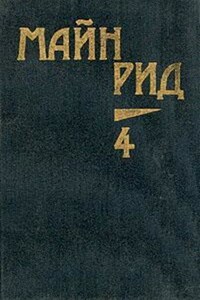A red light on the side of the phone began to blink on and off, which meant that there was a call. Adam had switched the ringer tone onto mute because sometimes when it rang it startled the hell out of him. Now as he watched the light he made no move to pick up the receiver. It was late; past ten and he knew who it was. He wondered how long she would let it ring before she gave up. He could picture her standing in their living room at home or pacing back and forth from the kitchen. Her mouth would be clamped shut, her lips an unyielding line. The colour of her eyes would be vivid blue; they were a darker shade when she was angry. These days she was angry a lot.
He counted the flashes: seventeen, eighteen. Then the light went out. He waited to see if she would call back but the light remained off. Later, when he got home, or in the morning if she was asleep by then, she would ask where he’d been. He’d say he was working and she’d say she’d phoned, the suspicion in her voice cracking like a whip. He’d tell her he hadn’t noticed and then it would start; the familiar argument which would escalate and veer off in different directions but would ultimately come back to the same well-worn theme. He was never home. One day he’d come through the door and she would be gone and then maybe he would be sorry. Accusations flung like rocks. Work! It was always his fucking work! Well, what about her? What about them?
The office he rented was small. A long narrow room above a photography shop in Fulham. He didn’t need a lot of space. In fact as a freelancer he could have worked at home easily enough, which he had before he and Louise had married. In those days he could keep whatever hours he wanted. Now he had this place. He even kept a camp bed there for the nights when he was so exhausted he would begin to nod off as he worked.
The notes and pictures for the story he was working on were scattered messily along the long wooden bench that served as his desk. Transcripts of interviews with police, family, neighbours, friends, in fact almost anybody who had come into contact with Elizabeth Mount since she had vanished. Some of the photographs her parents had given him were pinned on the wall. He liked to see the faces of the people he was looking for whenever he glanced up. That way they remained real. They were people not merely names. The more he learned about them the better he felt he knew them. Often he knew more about them than their own families because he learned things from their friends that children rarely tell their parents. Usually about boys (if they were girls, and usually they were) or plans they had to go somewhere or do something their parents wouldn’t approve of.
Elizabeth was sixteen. Her friends called her Liz. Her birthday had been in April, three weeks after she’d vanished. It was late May now. The initial inquiry and attendant publicity had tapered off. The official view from the police was that she had run away. She had joined the thousands of others like her who fled their families and home towns each year for the cities, where they melted into the anonymous underbelly of society. Sometimes their families never heard from them again. They changed their names, became involved with drugs, prostitution, criminal activities. All the usual litany of the underclass.
It wasn’t as if Adam hadn’t heard the story before. He had files crammed full of notes about kids like Liz, mostly girls, though there were a fair percentage of boys too. Runaways. People sent him letters all the time. They used to phone as well until he made his number unlisted. He had a reputation now. Not only did he write about kids that went missing, sometimes he found them. Not always, but enough times that he had made this particular patch of expertise his speciality; he’d achieved a degree of minor fame. A couple of times he’d been interviewed on TV, and lots of times on radio. The families of the missing turned to him out of desperation, when nobody else would help. They asked him to find their children, and sometimes he did. The trouble is they were usually dead.









